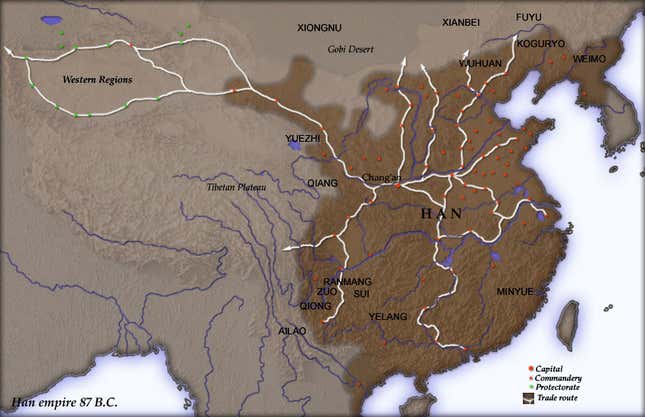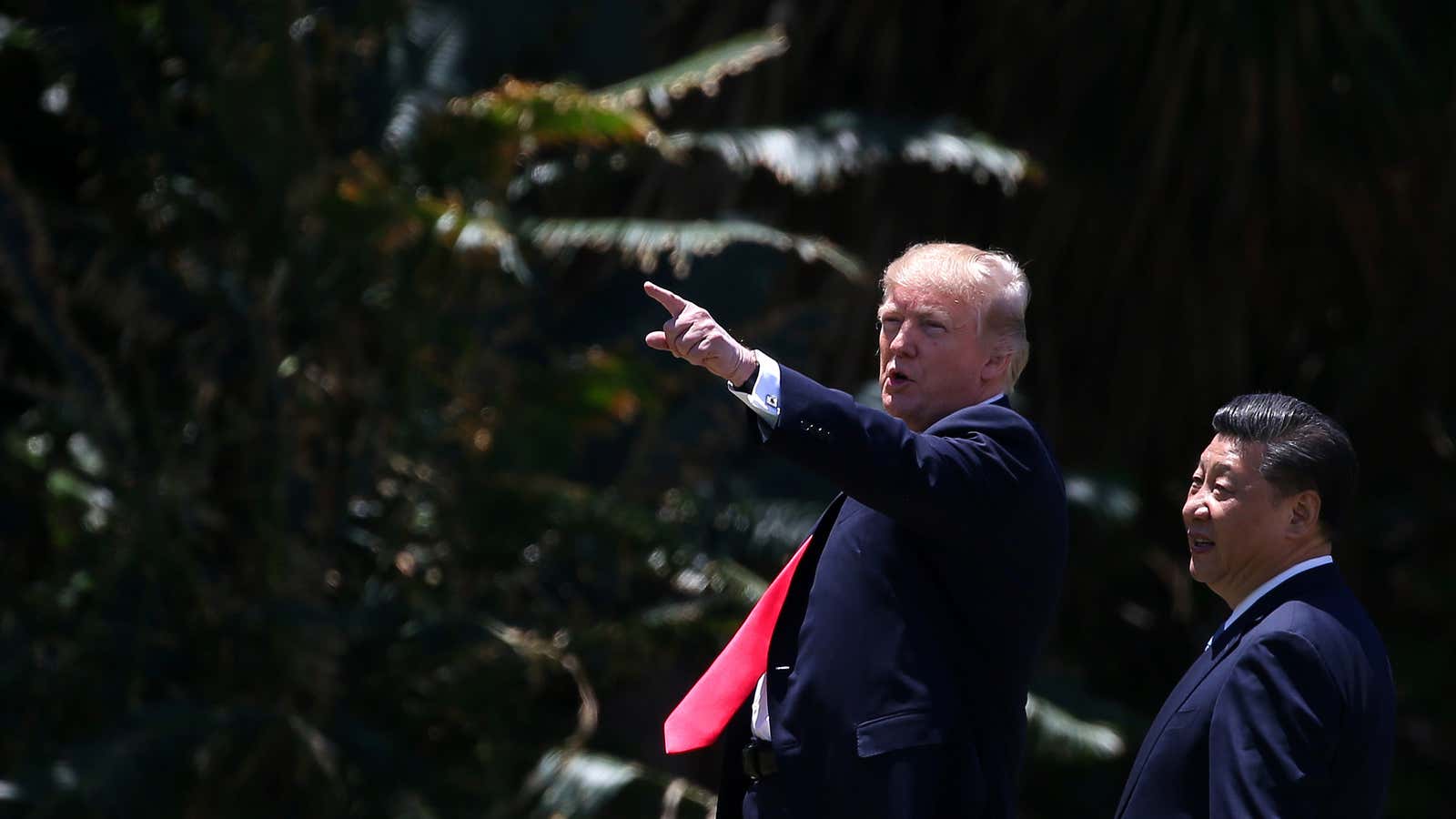Following his meeting with Chinese president Xi Jinping, Donald Trump made a shocking admission of ignorance to the Wall Street Journal, on the subject of China and North Korea: “After listening [to Xi] for 10 minutes I realized that…it’s not so easy.” Trump has been called out for having his views on such an important geopolitical issue shift dramatically in a matter of minutes. He also may not know who rules North Korea.
Right before that line about listening to Xi, though, Trump said something arguably even more shocking. He claimed that “Korea actually used to be a part of China.” This is a glaring historical inaccuracy that has, somehow, not yet enraged South Korea, which is usually extremely defensive about suggestions that it is lesser than China or has ever been dependent on it.
Trump also made it clear in the interview that when he says Korea “used to be a part of China,” he is talking about the entire Korean peninsula, not just the North. Here’s the full quote:
[Xi] then went into the history of China and Korea. Not North Korea, Korea. And you know, you’re talking about thousands of years …and many wars. And Korea actually used to be a part of China.
“No respectable historian would make such a claim,” said Kyung Moon Hwang, a history professor at the University of Southern California and author of A History of Korea, when I asked him via email to assess Trump’s statement.
We can probably assume that Trump did not have ideas of his own about this matter of Asian history, and in fact got this notion from Xi. But where would Xi have gotten it? “It’s possible that Xi said something like this, as such a story has been part of the nationalist history project under the Chinese Communist Party for a couple of decades,” added Hwang.
There are two moments in history that come close. The first was under the Han Dynasty, which in the second century BC set up four “commanderies” in the northern part of Korea. These, however, were more like British colonial rule in India, and not a formal union of Chinese and Korean territory. Still, Chinese researchers have tried to argue that this places Korea within “Chinese local history.”

The next moment came in 13th century AD, when the Mongol empire’s global domination happened to include both China and Korea. After a total of seven campaigns to take Korea, the Mongols succeeded, but “even then, the Mongols controlled China more directly than Korea,” said Hwang. Setting aside the controversial question of whether the empire of Mongol invaders counts as “China,” Korea was regardless only a vassal state of the Mongols.
If Xi said “something like this,” though, it is unlikely that he said anything as strong as Korea being ”part of China.” He could have reasonably said something to the effect of, “Korea was once a part of the same empire as China.” That would apply to the Yuan Dynasty, the one set up by the Mongols and ruled by Kublai Khan. Or he may have said, “China once ruled Korea,” which could maybe work for the Han Dynasty. Trump could have then interpreted either of those statements as meaning Korea was “part” of China—which would be wrong, of course. Or maybe there was a translation issue. We’ll probably never know what Xi actually said.
Still, to Hwang’s point, the perception of Korea being part of China has some credibility in the mainland. For example, one question on Zhidao—a question-and-answer site akin to Quora—asks (link in Chinese), “Do Koreans know that Korea was once part of China?”
To which the top answerer responds, correctly, “you are mistaken.”
